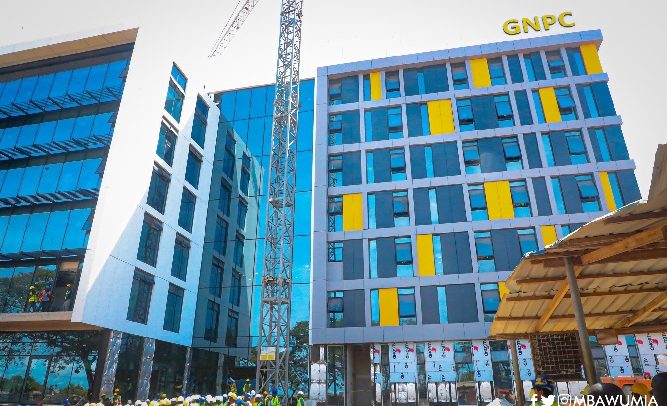March 20, 2025
The Ghana National Petroleum Corporation (GNPC) is set to receive a significantly reduced share of petroleum revenues under the government’s 2025 budget proposal.
Government’s decision to cut GNPC’s share of net Carried and Participating Interest (CAPI) from 30 percent to 15 percent is being presented as a necessary step to rein-in spending, according to Finance Minister Dr. Cassiel Ato Forson.
However, energy policy analysts argue that without deeper reforms the reduction may have little impact on GNPC’s long-standing inefficiencies.
Under the Petroleum Revenue Management Act (PRMA), GNPC is entitled to up to 55 percent of net CAPI (Level B financing) from petroleum revenues, in addition to its equity financing costs (Level A financing) for 15 years following its first receipt in 2011.
In practice, the corporation has received 30 percent amounting to US$1.32billion from its total US$2.99billion receipts as of mid-2024.
The funds were intended to support GNPC’s investments in oil and gas exploration, but the Africa Centre for Energy Policy (ACEP) in its take on the 2025 budget warns that much of it has been diverted toward operational expenses rather than productive investments.
“GNPC has expanded its administrative costs, staff salaries and capital expenditures while making little progress in exploration,” stated the Policy Lead, Petroleum & Conventional Energy at ACEP, Kodzo Yaotse, .
“It has spent over US$150million gathering 2D seismic data for the Voltaian Basin without drilling a single well, despite an initial plan that earmarked only US$60million for both data collection and drilling.”
By halving GNPC’s share of net CAPI, government aims to force the corporation to cut costs and focus on its core mandate. But ACEP’s analysis suggests GNPC may be shielded from financial constraints due to an additional revenue stream that remains outside the PRMA framework.
The corporation’s 7 percent additional interest in the Jubilee oil field – originally held by Jubilee Oil Holdings Ltd. (JOHL) and now managed by its subsidiary GNPC Explorco – has accumulated approximately US$418million in revenues as of June 2024. Unlike GNPC’s main petroleum receipts, this income does not fall under the PRMA’s governance – meaning it remains largely unchecked.
It was underscored that with the Jubilee stake continuing to generate substantial revenue, GNPC may not feel the pinch of this budget cut as much as intended. Given this, it is felt that unless government introduces stronger oversight mechanisms, the corporation could maintain its existing spending patterns.
ACEP and other watchdog groups, including the Public Interest and Accountability Committee (PIAC), have raised concerns about GNPC’s financial management for years. For instance, it will be recalled that PIAC had to seek parliament’s intervention over the transfer of receipts from JOHL into the Petroleum Holding Fund.
While the corporation plays a key role in the country’s energy sector, its spending priorities, according to ACEP’s analysis, have often leaned toward operational expansion rather than aggressive oil and gas development.
The fear now is that the cut to its net CAPI share will be more symbolic than effective without additional reforms.
Parliament is however yet to approve government’s 2025 expenditure plans presented by the finance minister.
Source: bftonline



